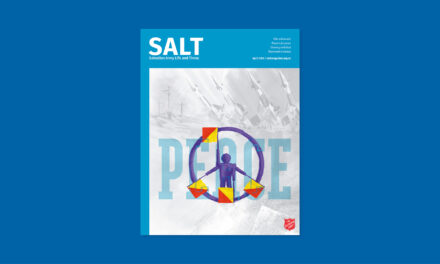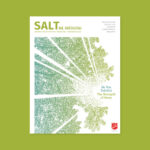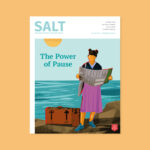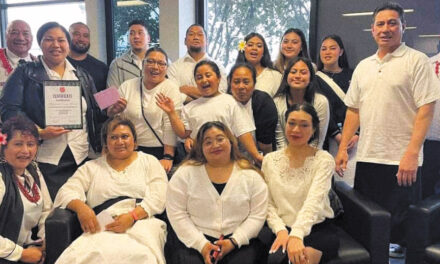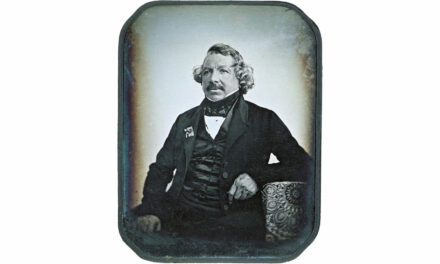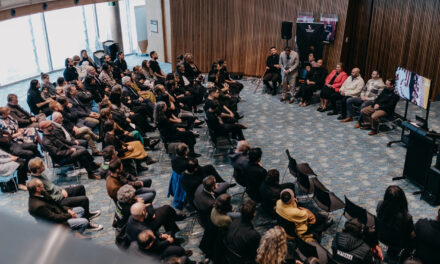
Zonal Leaders Review Territory
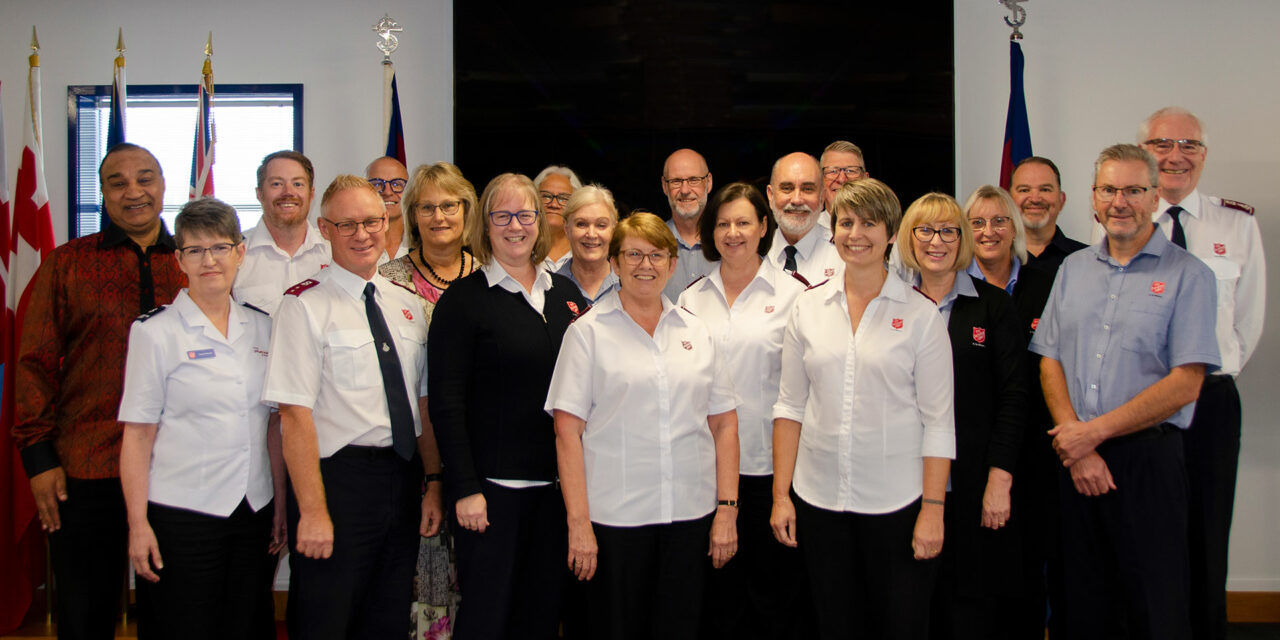
Commissioners Robyn and Wayne Maxwell, International Headquarters, are the zonal leaders for South Pacific East Asia Zone (SPEAZ). Recently they visited our territory to conduct a review. Jules Badger caught up with the Maxwells and asked them about their work within the zone.
Internationally, The Salvation Army New Zealand, Fiji, Tonga and Samoa Territory is part of the South Pacific East Asia Zone (SPEAZ), which extends from Korea in the north to New Zealand in the south. SPEAZ includes nine territories and one region but 20 countries—with our territory making up four of those countries.
The Maxwells’ role is to provide missional and pastoral support, as well as advocacy and resourcing for individual territories.
‘It was explained to us when we came into the role that the Zonal Office is like the hinge on the door between the General [leader of The Salvation Army internationally] and the territories,’ says Robyn.
‘A report on our visit is shared at the General’s Council,’ explains Wayne.
Focused listening
Zonal leaders carry out reviews, and so they were recently in our territory, meeting with leaders and conducting focus groups. Territorial reviews take place approximately every three years. This year the impetus was on mission impact, spiritual health, strategic direction, and the implementation of the governance process still relatively new around the Army world.
Some focus groups take place online, but most are in person. ‘We stress with focus group participants that their identity remains confidential, and we ask that they also respect that for each other—that’s agreed to at the outset,’ explains Wayne.
‘Rather than sitting in a board room listening to department heads present, we meet with and listen to those on the frontline—officers, local officers, employees, women in leadership, young people and also clients,’ says Robyn.
Themes emerge which are then shared with leadership, providing objective information about what is happening around the territory and what can be improved.
During the Maxwells’ visit, they also travelled to Tonga and took part in a youth rally and a combined regional meeting.
Finance, growth and the Ring of Fire
The challenges facing SPEAZ are as varied as the 20 countries it comprises. However, finance stands out—especially for places like Papua New Guinea where the Army is growing, but raising funds locally is extremely difficult.
‘Myanmar is funded by Singapore for the same reason,’ explains Wayne. ‘And of course, it’s a country at war which brings numerous and complex challenges. Salvationists in Myanmar live day-to-day, every day.’
Another key challenge facing the zone is the small number of cadets entering training for officership. However, as Wayne explains, in Indonesia the opposite is true; they have 50,000 soldiers. And despite being a Muslim country, The Salvation Army is growing and thriving in Indonesia.
‘They have a training college at full capacity with 75 cadets,’ explains Wayne. ‘In fact, the situation in Indonesia is such that once officers have learnt a particular language, they may well be sending officers to reinforce leadership in the very countries that once sent missionaries to them.’
The zone is also situated in what is known as the Ring of Fire, meaning that 80 percent of natural disasters happen in our zone. ‘At any given time, there is a natural disaster happening in the Pacific,’ explains Robyn. ‘Disasters are rampant—earthquakes, volcanic eruptions and floods. Out of the 20 countries most affected, eight are in our zone.’
‘It is often heartbreaking for us, but also inspiring,’ says Wayne. ‘We’ve been to an officer’s quarters where a flood had just come through for the second time that year. When we asked the officer what she needed—knowing she was sleeping on a bamboo pallet and had no electrical appliances, she’d lost everything—she said, “I have everything I need”.’
Temperature rising
Both Robyn and Wayne agree that the spiritual temperature and growth within the zone is highest in places facing hardship and extreme challenges.
‘In the Philippines, when the people are hungry, they pray; if they are sick, they pray. We would go to the supermarket or the doctor. Prayer is not always our first response because it doesn’t have to be. So, the very first thing you notice is their strong faith and dependence on God,’ says Robyn.
‘We recently shared online with a local officer from Myanmar, where every day is a struggle for food and finance. But she assured us that her people are spiritually strong. During Covid-19, Myanmar enrolled 260 soldiers. One place lost their hall, it burnt down in the fighting, so they moved into the forest and set up their flag. It’s heart wrenching, but just imagine if we could bottle that passion for God and give it to us in Australia and New Zealand.’
Leaders of the future
Within the zone, investment in the development of national and indigenous leaders is being given priority. ‘We haven’t always done this well in the past—preparing leaders to take on the responsibility of their own country or territory. We are now making plans to remedy this by strategically preparing and equipping local leaders for future senior leadership,’ explains Wayne.
‘Singapore currently has national leadership for the first time in its history, and Papua New Guinea has its first female married chief secretary,’ reports Robyn. ‘We are fully supportive of raising up national leaders, while remembering we are an international Army and still have lots to offer and learn from one another.’


